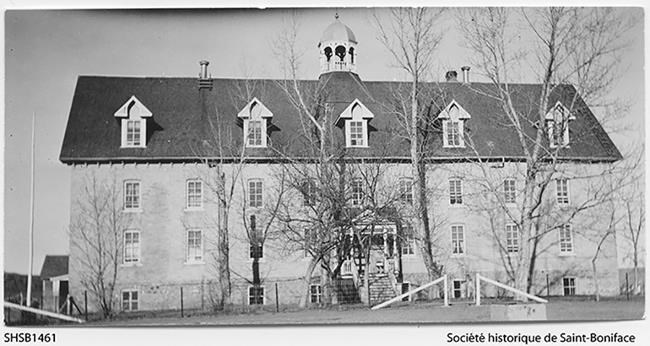A Cowessess First Nation elder is recalling the abusive and dehumanizing experiences she had while attending a residential school in Saskatchewan as news of the hundreds of unmarked graves found at the site rippled around the world.
Florence Sparvier, 80, said Thursday that she spent time at the Marieval Indian Residential School when she was a child.
“They made us believe we didn’t have souls," said Sparvier, who is a knowledge keeper at Cowessess.
“They were putting us down as a people, so we learned how not to like who we were."
She said she was taken to the school by her parents.
“At that time, if the parents didn’t want to allow their children to go to boarding school, one of them had to go to jail. So in order to keep the family together, we went to boarding school.”
On Thursday, Cowessess First Nation announced that ground-penetrating radar had detected 751 unmarked graves at the Marieval site. Last month, a First Nation in British Columbia said radar had found what are believed to be the remains of 215 children at the former Kamloops Indian Residential School.
Sparvier was the third generation of her family to go to the Marieval school, after her mother and her grandmother. She also attended the Lebret Indian Industrial Residential School.
She said the nuns at the Marieval school worked to strip students of their Indigenous knowledge and identity.
“We learned,” she said. “They pounded it into us. And really, they were very mean. When I say pounding, I mean pounding."
The school, about 160 kilometres east of Regina, was built in 1899 by Roman Catholic missionaries. It closed in 1996.
“We had to learn to be a Roman Catholic," Sparvier said. "We couldn’t say our own little blessings the way we said it at home.
"We had our own way of honouring ourselves and Mother Earth in our own homes when we were little, but we had to leave all that.”
Sparvier said the teachers at the residential school were “very condemning” about First Nations people.
Eagleclaw Thom in Ottawa said he cried on the phone with family members as they shared stories of attending Marieval and other residential schools.
Thom, who is from Sakimay First Nation, which borders Cowessess, did not attend Marieval but his father and paternal grandparents did.
To really honour those who lost their childhoods or their lives at the school, he said, action needs to be taken to ensure Indigenous children are now supported, too.
"They are still jailing our kids," he said.
Chief Bobby Cameron of the Federation of Sovereign Indigenous Nations described the residential school system as “a crime against humanity, an assault on First Nations people.”
The federation represents 74 First Nations in Saskatchewan.
“The only crime we ever committed as children was being born Indigenous,” he said.
This report by The Canadian Press was first published June 24, 2021.
-- With files from Kelly Geraldine Malone in Winnipeg
Julia Peterson, The Canadian Press
Note to readers: This is a corrected story. A previous version had 715 unmarked graves.




